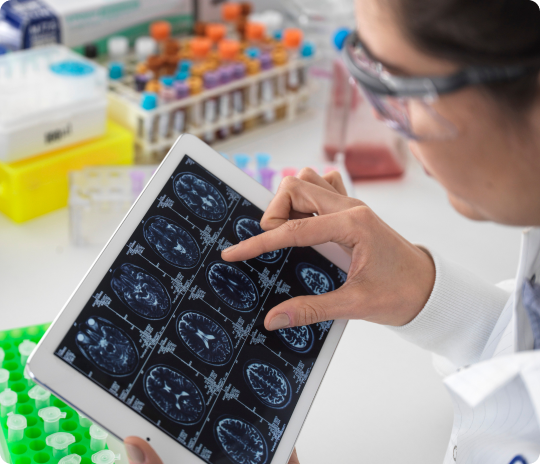RESEARCH IS FUNDAMENTAL
A big part of The Wolverine Foundation’s remit is to collaboratively enable any researcher that is interested in working on The MAPK8IP3 Genetic Mutation by lowering the barrier to entry through the provision of MAPK8IP3 domain knowledge, animal models or funding. In our role as a collaborative enabler, The Wolverine Foundation seeks to bring the right partners together to identify and address critical scientific issues to increase the understanding of MAPK8IP3 and hasten the development of therapeutic approaches to clinical evaluation as rapidly as possible. We also work closely with colleagues at the patient advocacy organizations (like the CureMAPK8IP3.com patient family group) around the world to forge links between patients/families and researchers/clinicians to speed the drug development process.

